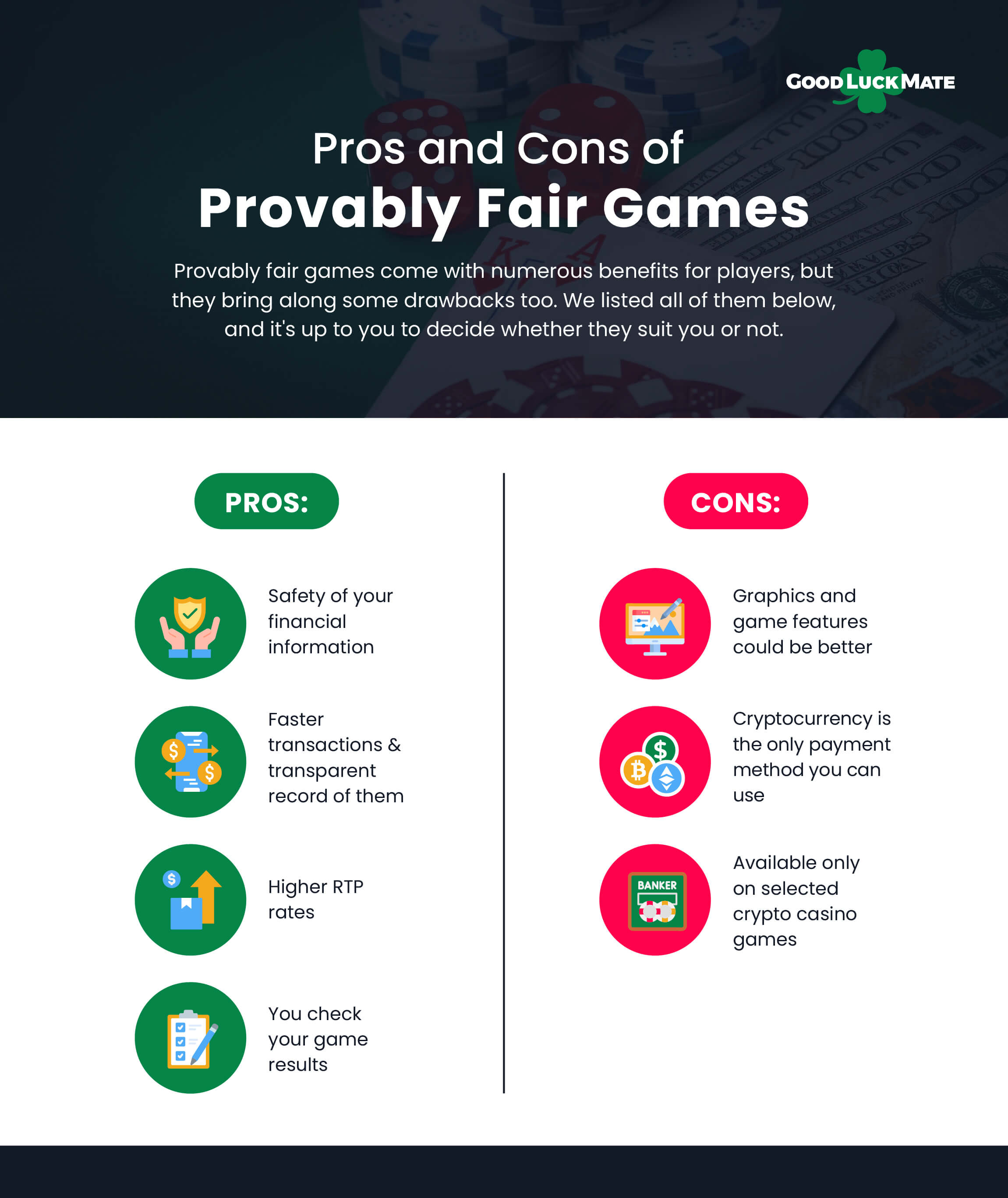Your Ultimate Hookup Resource
Explore a comprehensive directory for connections and relationships.
Winning the Trust Game: Exploring the Charm of Provably Fair Gambling
Discover the secrets of provably fair gambling and learn how to win trust in the gaming world! Your jackpot awaits!
How Provably Fair Gambling Works: A Comprehensive Guide
Understanding how provably fair gambling works is essential for players who seek transparency and fairness in online gaming. At its core, the concept utilizes cryptographic techniques to ensure that both the player and the casino can verify the outcome of each game or bet. Typically, this process involves a random number generator (RNG) and a set of cryptographic hashes. Before the game begins, the casino generates a string of random numbers, which is hashed and made public. This allows players to confirm that the game results were not manipulated post-game, leading to a trustworthy gambling experience. By utilizing blockchain technology, many platforms take additional steps to ensure that every game played can be scrutinized by players.
Provably fair gambling not only enhances player trust but also fosters a sense of community among gamers. Players can often find detailed statistics and reports that allow them to analyze previous games and outcomes, providing valuable insights into the fairness of the platform. This transparency can be particularly appealing to tech-savvy individuals who appreciate the ability to verify fair play. Additionally, many online casinos now offer tutorials and guides to help players understand how to check the fairness of their games. By choosing platforms that champion provably fair gambling, players can enjoy gaming with the peace of mind that every spin or deal is entirely legitimate.

Counter-Strike is a popular first-person shooter game that pits teams of terrorists against counter-terrorists in intense combat. Players can engage in various game modes, including bomb defusal and hostage rescue. For those looking to enhance their gaming experience, consider checking out the duelbits promo code for some exciting bonuses.
The Importance of Transparency in Online Gambling: Building Trust with Players
Transparency is a critical component in the online gambling industry, playing a vital role in establishing and maintaining trust between operators and players. In a world where online transactions can be fraught with risk, demonstrating clear, honest communication about game rules, payout percentages, and the use of player data is essential. When players are aware of how games operate and how their personal information is handled, it significantly reduces the anxiety associated with online gambling. Furthermore, operators who openly share this information are more likely to cultivate a loyal player base who feels valued and understood.
Moreover, regulatory compliance and third-party audits enhance transparency by ensuring that online casinos adhere to established standards and fair gaming practices. Operators that prominently display licenses and certifications from recognized authorities reassure players of their commitment to safe gaming experiences. Integrating tools such as live chat support and transparent reporting metrics can also foster a sense of security, inviting players to engage without fear of deception. Ultimately, prioritizing transparency not only builds trust with players but also strengthens the overall integrity of the online gambling community.
Is Provably Fair Gambling Changing the Casino Landscape Forever?
The emergence of Provably Fair Gambling has introduced a revolutionary way of ensuring transparency and fairness in the online gaming sector. Unlike traditional casinos, where the house edge often remains ambiguous, provably fair systems utilize blockchain technology and cryptographic algorithms to provide verifiable randomness. This innovation not only enhances player trust but also reshapes the entire casino landscape by allowing players to independently verify the outcomes of their bets. As more online platforms adopt this model, we are witnessing a shift towards increased accountability and fairness, which could become the industry standard.
Moreover, the implications of Provably Fair Gambling extend beyond mere transparency; they also attract a growing demographic of tech-savvy gamblers who value integrity in their gaming experiences. With the ability to see how each game result is determined, players are more likely to engage with operators who prioritize fairness. This shift could lead to a competitive advantage for casinos that embrace this technology, potentially driving traditional establishments to adapt or risk obsolescence. As the gambling industry continually evolves, it's clear that the adoption of provably fair systems might just be the catalyst for long-lasting change.